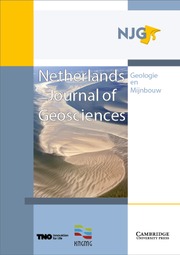Article contents
Ocean Space and the Anthropocene, new notions in geosciences? – An essay∙
Published online by Cambridge University Press: 25 March 2014
Abstract
Two notions, Ocean Space and the Anthropocene, are discussed. The first is occasionally used in legal and governance literature, and in the media. The Anthropocene, however, is widely applied in the global change research community and the media. The notion of ocean space stands for a holistic, system science approach combined with 4D thinking from the ocean, and the processes within it, towards the land. Ocean space is in fact a social-ecological concept that deals with sustainability challenges which are the consequence of the complex interactions between humans and the marine environment on all scales. Ocean space is, on a human scale, impressively large. On a planetary scale, however, it is insignificant, although it has been an ancient feature of the Earth for the last four billion years or so. Yet, ocean space is a critical player in the Earth System; it is central to climate regulation, the hydrological and carbon cycles and nutrient flows, it balances levels of atmospheric gases, it is a source of raw materials vital for medical and other uses, and a sink for anthropogenic pollutants. The notion also encompasses issues such as exploration, adventure, science, resources, conservation, sustainability, etc., and should be an innovative and attractive outreach instrument for the media. Finally, it marks the fundamental change in ocean exploration in the twenty-first century in which ocean-observing systems, and fleets of robots, are routinely and continuously providing quality controlled data and information on the present and future states of ocean space. Advocates of the notion of the Anthropocene argue that this new epoch in geological time, commenced with the British industrial revolution. To date, the Anthropocene has already been subdivided into three stages. The first of these coincides with the beginning of the British industrial revolution around 1800. This transition quickly transformed a society which used natural energy sources into one that uses fossil fuels. The present high-energy society of more than seven billion people mostly with highly improved living standards and birth rates, and a global economy, is the consequence. The downside of this development comprises intensive resource and land use as well as large-scale pollution of the (marine) environment. The first stage of the Anthropocene ended abruptly after the Second World War when a new technology push occurred, leading to the second stage: ‘the Great Acceleration’ (1945-2015) followed by the third: ‘Stewards of the Earth’. Here it is concluded that the notion of the Anthropocene reflects a hierarchical or individualistic perspective, often leading to a ‘business as usual’ management style, and ‘humanises’ the geological time scale. The use of this notion is not supported. However, it is already very popular in the media. This again might lead to overestimating the role of humans in nature, and might facilitate an even more destructive attitude towards it, through the application of geo-engineering. The latter could be opening another Pandora's box. Instead we should move to a more sustainable future in which human activities are better fine tuned to the environment that we are part of. In this respect, transition management is an interesting new paradigm.
Keywords
- Type
- Research Article
- Information
- Copyright
- Copyright © Stichting Netherlands Journal of Geosciences 2013
Footnotes
In: Mulder, E.W.A., Jagt, J.W.M. & Schulp, A.S. (eds): The Sunday's child of Dutch earth sciences - a tribute to Bert Boekschoten on the occasion of his 80th birthday.
References
- 2
- Cited by


